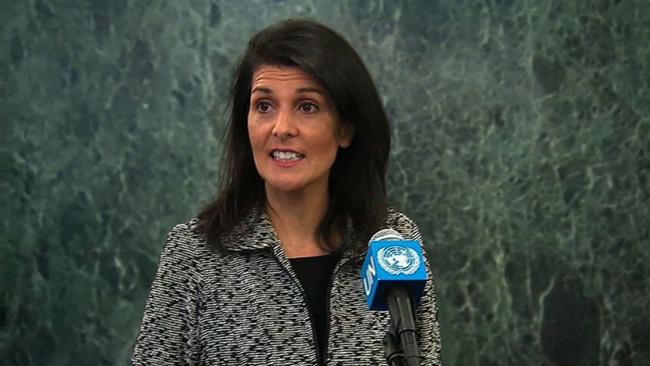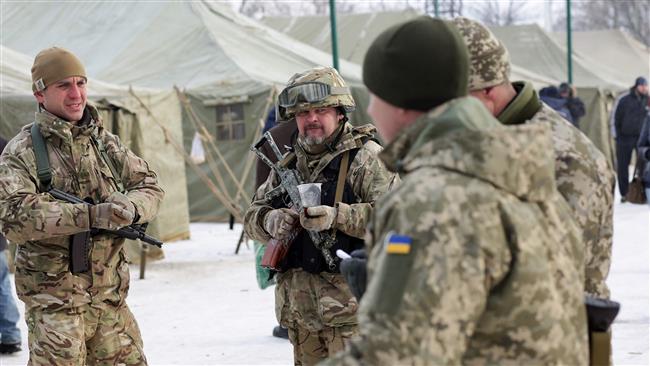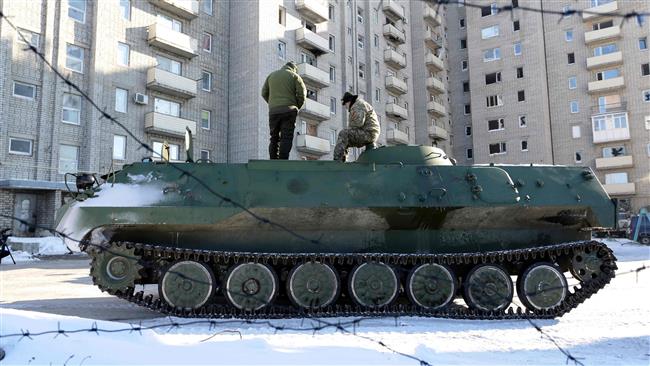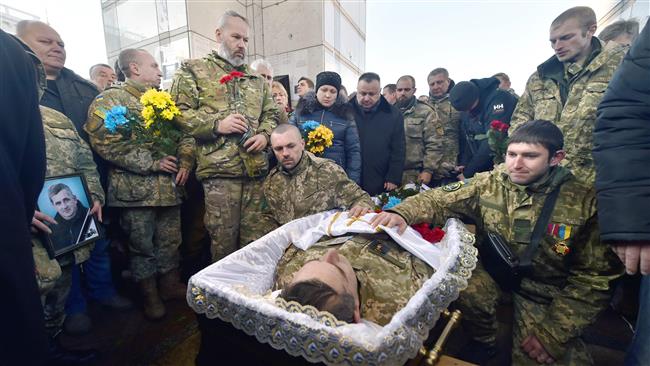OSCE wants 'real' withdrawal of arms in eastern Ukraine
The head of the European peacekeeping corps in eastern Ukraine has reiterated the importance of withdrawing heavy weapons from the front line of conflict.
"The intensity of hostilities is much, … too much. And what we want to see is really the withdrawal of the heavy weapons and we have very little evidence that this is taking place," said Lamberto Zannier, the Secretary General of the Organization for Security and Cooperation in Europe (OSCE), which monitors the conflict in eastern Ukraine.
On February 11, 2015, at a summit in the city of Minsk, Belarus, a peace deal was brokered by Russia, Germany and France, in which Kiev and pro-Russia forces agreed on a package of measures to alleviate the ongoing war in eastern Ukraine.
"[T]here was a line that was somehow defined in Minsk but that line doesn't really correspond to what is on the ground, because there have been movements. And there are some who say we should return to that line, but of course this becomes complicated," Zannier said in an interview on Friday.
Zannier called on both sides of the conflict to move back from positions established at the time of the Minsk accord in early 2015.

A week-long surge at the end of January and start of February saw the heaviest shelling in two years, refocusing global attention on the ongoing conflict, which has strained relations between Russia and the West to the worst degree since the Cold War era.
The three-year conflict in eastern Ukraine has left about 10,000 fatalities and over 21,000 people injured, according to UN figures.
VIDEO | Carol Singers for Palestine on London’s Parliament Square
American warplane downed after Yemeni attacks 'baffled' US air defense: Ansarullah
VIDEO | Yemenis praise the military for its successful operations against Israel
VIDEO | Israel continues to bomb Gaza homes
VIDEO | An insider's view of the country: Meybod City in Yazd
‘All wars have rules. All of those rules have been broken’ by Israel
VIDEO | Report flags India’s violation of rights of Rohingya detainees
Turkey's foreign minister meets Syria's de facto leader in Damascus














 This makes it easy to access the Press TV website
This makes it easy to access the Press TV website